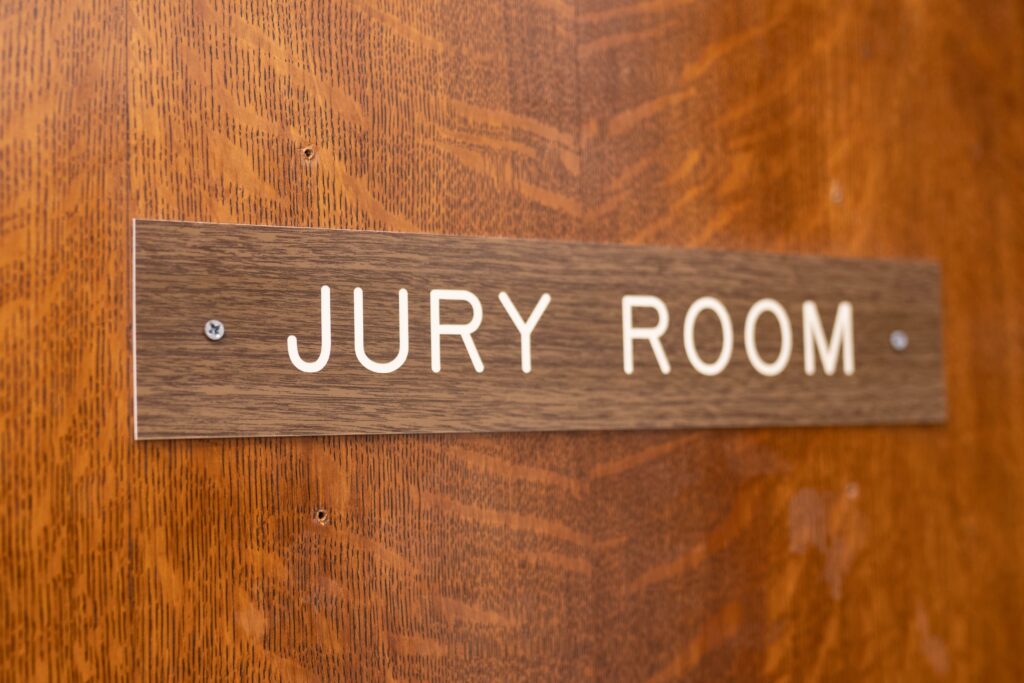“Justice” was not always as fair. Early attempts at justice were often cruel. As far back as 1000 B.C., ancient societies, and later the church, conducted “trial by ordeal”: Hot irons, boiling water, and dunking the accused in cold water were used to determine guilt or innocence. Often, simply surviving the ordeal was considered “proof” that the accused was not guilty.

Today’s jury system evolved from ancient Greece where, about 400 B.C., governors of Athens asked males over 30 to hear the arguments of alleged wrongdoers. As Aristotle explained it, these men were counseled to apply their understanding of “general justice,” not to interpret the law.
Juries express the voice of the population, and that voice can be a powerful force for change. A handful of English barons recognized this when, in 1215, they put a sword to the throat of King John and forced him to sign the Magna Carta. On the grassy plain of Runnymede, the barons received many freedoms, including the right to a trial by their equals, not by the king.
Four centuries later, William Penn was charged with unlawful assembly. Refusing to find him guilty of that charge, his jury was imprisoned and denied food and water. Jury members still refused to convict him. Penn went on to lead the cause of justice in the New World and to found the State of Pennsylvania.
Later, trial by jury was considered an essential right by early Americans. British attempts to deny colonists this right turned out to be a serious mistake. The colonists responded with the bold “Declaration of Causes and Necessities for Taking Up Arms.” The Declaration of Independence and the Sixth and Seventh Amendments to the United States Constitution later reaffirmed the right to an impartial jury of fellow citizens, a cornerstone of democracy today.
Juries are the “collective conscience” of our communities. Comprised of our neighbors, friends and relatives, juries call upon our sound judgment and character to decide what is the truth and what is fair compensation for those who have been wronged. Juries bring an openness to the courtroom. And, unlike other institutions, juries have no ambition. They want nothing for themselves, they seek only to find the truth.
Buckle up, drive safely, and as always, your referrals are appreciated! 256-764-0112
